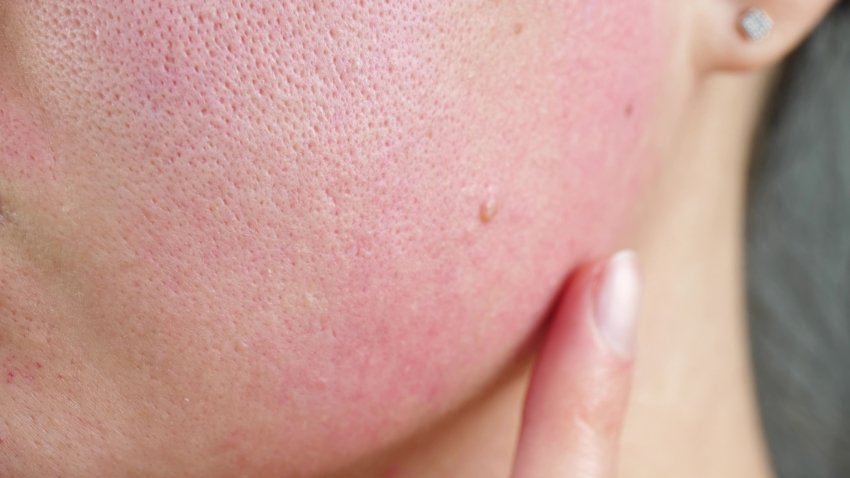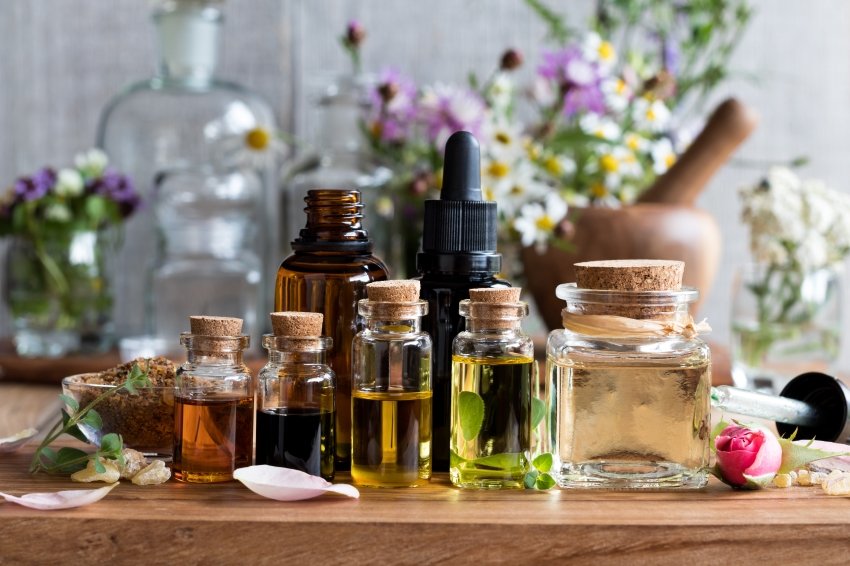No products in the cart.
Blog, Skin Care Products, The Miami Center for Dermatology
Going Natural: Do Essential Oils Improve Your Skin?
Essential oils get a ton of hype. These relaxing fragrances are great for diffusing throughout your home, but are essential oils bad for skin? While many people advocate for the “natural healing properties” of essential oils in skincare, many medical professionals, such as dermatologists, beg to differ.
Are Essential Oils Bad for Skin?
If you’re not familiar with essential oils, they are essentially (no pun intended) volatile essences of various plants that produce intense fragrances. The oils are extracted from the plants’ roots, flowers, leaves, fruits, etc. These concentrated oils produce fragrances that offer benefits such as headache relief, relaxation, insomnia relief, stress relief, and some even provide an energy boost. Although these are great benefits, these intense fragrances can be especially dangerous if you directly apply them to your skin, especially to your face.
This is what makes the essential oils debate so confusing—how can that sweet-smelling eucalyptus provide so many other benefits but not for your skin? However, if you’re aware of how irritating fragrances can be, essential oil or not, you’re probably not surprised that dermatologists warn against using most essential oils on the skin. Again, aromatherapy can be incredibly beneficial if you’re suffering from anxiety, stress, and headaches, so there’s no need to get rid of your diffuser!
There are a few oils packed with powerful antioxidants like rosmarinic acid and caffeic acid, or with antibacterial properties that can protect your skin from fungi and yeast. Although these are great pros, using products that contain other oils like citronellol, linalool, limonene, and more on a long-term basis will most likely cause irritation and damage to your skin.
Many modern skincare products advertise essential oils like tea tree, rosemary, lemongrass, and more to help relieve acne-prone skin. While some research shows they can help, these essential oils have also proven to be extremely irritating for many patients, even if your skin doesn’t show it at first. If you’re going to treat acne, dermatologists recommend ingredients like benzoyl peroxide and salicylic acid, which have proven time and time again to reduce acne significantly. Even if you have sensitive skin and cannot tolerate these ingredients, the more “natural” ingredients aren’t always the best way to go.

Which Essential Oils Are Safe for Skin?
In short, are essential oils bad for skin? The short answer is yes, although there are some exceptions. When it comes to using essential oils, it’s best to stick to the diffuser. And by no means should you apply essential oils directly to your face!
Certain essential oils can be beneficial or just not harmful to your skin. Skincare that contains 0.1% of an essential oil is likely non-irritating. Still, once a product contains several different essential oils with much more than that percentage, there’s a higher risk of an adverse reaction from your skin. This irritation will cause premature aging and long-term damage, even if you don’t see the irritation in your skin for a while.
We recommend avoiding essential oils like lemon, camphor, clary sage, jasmine, ylang-ylang, eucalyptus, ginger, and several others. Oil in and of itself is not necessarily harmful, as many non-essential oils can do wonders for your skincare routine. Remember to always check in with your dermatologist before using products that make you feel too unsure.
In order to cater to pretty much any and every skin type, we have a large array of products in our very own skincare line. Whether you have sensitive skin, acne-prone skin, dry skin, or any other type, we have something for you here on our Dr. Longwill Skincare shop. Almost all of our products are fragrance-free, essential oil-free, and non-irritating! Check out our entire collection of skincare products in our online shop.







